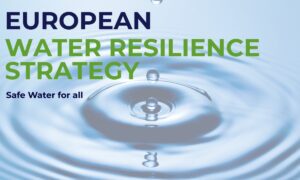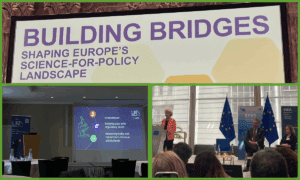At the fourth edition of the Renewable Hydrogen Summit, European Commission President Ursula von der Leyen delivered a powerful message via video, underscoring Europe’s growing momentum in the renewable hydrogen sector and its pivotal role in the transition to a clean, green economy.
Von der Leyen opened her address by reflecting on the progress made since the inaugural Clean Transition Dialogue a year ago, where leaders from across the renewable hydrogen value chain gathered to discuss how to accelerate Europe’s hydrogen market. Since then, the continent has made significant strides, with over 2 gigawatts of renewable hydrogen projects reaching final investment decisions (FID) – a fourfold increase from its current capacity. The President celebrated this achievement, pointing to the massive scale-up of renewable hydrogen projects across Europe. She highlighted the Boden steel plant in Sweden, supported by the European Innovation Fund, which will soon become the world’s largest renewable hydrogen project.
“This is just the beginning,” von der Leyen stated, stressing the scale of Europe’s ambitions. “With REPowerEU, we set a target to produce 10 million tons of renewable hydrogen by 2030. And to achieve this, we have established the world’s first comprehensive legislative framework.”
Central to this framework is the Renewable Energy Directive, which sets binding targets for renewable hydrogen usage – 42% for industry and 29% for transport by 2030. Von der Leyen explained that these goals, once incorporated into national laws by May 2025, will unlock significant demand for renewable hydrogen and drive further production across Europe.
However, she also acknowledged that challenges remain, particularly in building clean lead markets. The European Commission is working closely with Member States and industry players, from steelmakers to energy providers, to identify key priorities and accelerate infrastructure development. This effort will be part of the new Clean Industrial Deal, which will outline how Europe can tap into its renewable energy potential to decarbonise heavy industries.



